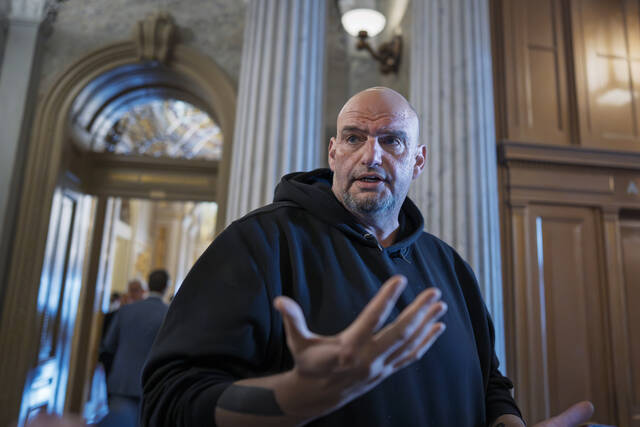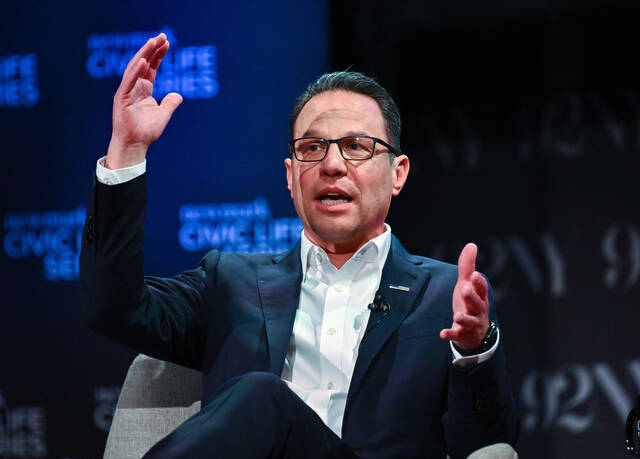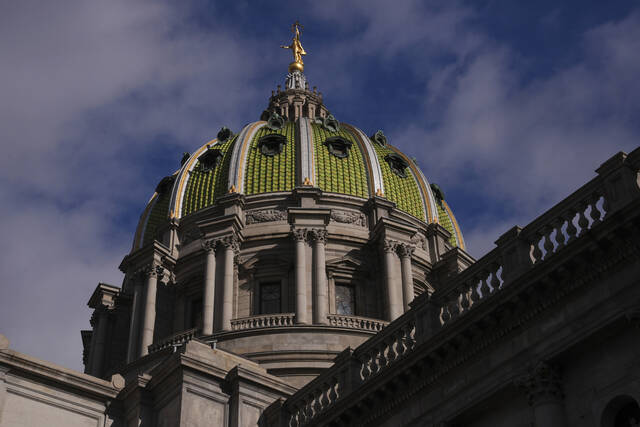Cornel West, the provocative, left-wing scholar, appeared via video in a federal courtroom in Pittsburgh on Monday seeking to have his name added to the Nov. 5 presidential ballot.
West filed a complaint last month alleging discrimination against the Pennsylvania Department of State for blocking him from appearing on the ballot as an independent candidate for president.
The complaint was filed by attorney Matthew Haverstick, long known to represent the statewide Republican party.
On Monday, Haverstick said the national conversation advances when parties of all stripes have access to the ballot.
“I’m doing this because I think the cause is just,” he said. “I think everyone benefits where there are different voices on the ballot.”
However, according to Alison Dagnes, a political science professor at Shippensburg University, it is a clear effort by Republicans to split the vote in Pennsylvania.
“It makes sense for the Republicans to have, especially, a third-party candidate who is an African American intellectual on the ballot,” she said, “because anything they can do to take votes away from Vice President [Kamala] Harris will be beneficial to the Republicans. That’s not even a question.”
‘Force for good’
According to West’s complaint, he submitted nominating papers with 13,000 signatures this summer.
However, the department rejected those papers, finding that West didn’t have “candidate affidavits” for all 19 electors that he submitted.
According to the complaint, that process is required only in the event of a third-party candidate.
U.S. District Judge J. Nicholas Ranjan gave the parties until Tuesday afternoon to file supplemental briefs before he makes a decision on the matter.
During Monday’s hearing, West railed at the unfairness of the two-party system.
West, an academic and theologian, said he was running “to be a force for good in a society I understand to be broken but full of promise.
“Justice is what love looks like in public.”
West told the court that the United States is living in a time of “spiritual decay and moral decadence,” and neither of the two major-party candidates — Harris, a Democrat, and former President Donald Trump, the GOP nominee — is addressing those problems.
“This is about equal protection of voices,” he said. “It’s very difficult for the citizens to gain access to a variety of different voices.”
West said that the two-party system has a stranglehold on the country. His name is currently on the ballot in 15 states, according to his website. He is seeking write-in votes in 23 other states.
“When two parties make the rules and enforce the rules, it makes it difficult for a third party,” he said.
Difficult, but possible
Following West’s testimony, Jonathan Marks, the state’s deputy secretary for elections, said the certified candidate list in Pennsylvania was finalized Sept. 16.
Adding a new candidate to ballots that have already been printed could lead to potential problems in the upcoming election.
“I am not confident that that could be done by Election Day,” he said.
Some of the vendors used for printing, Marks said, cannot print millions of ballots at a time.
“They do not have the capacity to print all their ballots at once,” he said.
Marks also told the judge that more than 1.1 million mail-in ballots have already been sent to voters. Further, many voting machines and tabulators have already gone through the logic and accuracy testing required prior to Election Day.
That testing must be done 15 days before each election.
When pressed on cross-examination by Haverstick, Marks admitted if forced to add West’s name to the ballot, it could be done.
“It would become exponentially more difficult as time passes,” he said. “I’m not suggesting it would be easy to do it today. Doing it two weeks from now would certainly be a lot more difficult than it is at this moment in time.”
Trying to rush through the changes, Marks said, would cause him “grave concern.
“If you try to compress timelines that are usually much longer than that, you open yourself up to unforced errors,” he said.
During argument, Haverstick said it’s clear his client meets the requirements for an injunction.
“When you can’t get on the ballot and you can’t vote for the candidate you want to, that’s irreparable harm,” he said.
Haverstick suggested that, instead starting over, the court could add West’s name to ballots in places where they’ve not already been printed — and potentially put a note in voting booths about the ability to write him in.
“We’re not asking for the expenditure of zillions of dollar or to redo what’s already been done,” he said.
Still, the idea of what West is seeking is important, Haverstick said.
“It’s part of a continuum of opening access to third parties in future races,” Haverstick said. “It’s about the next one and the next one and the one after that.”
Second-guessing?
West previously filed an action in Pennsylvania’s Commonwealth Court attempting to have his name placed on the ballot. The court, however, dismissed the petition. The state Supreme Court later affirmed that decision.
“I think it would be inappropriate for a federal court to second-guess that,” said Jacob Boyer, the attorney who represented the Department of State.
Boyer accused West of delay in filing his complaint and said that if the court puts him on the ballot, there will still be a seven-day period during which challenges can be made to his nominating signatures.
That delay will just continue to cause potential problems with voting systems, Boyer said.
In April, West showed up at a protest in Oakland where pro-Palestinian demonstrators were demanding that the University of Pittsburgh divest from any war-related investment in Israel.








